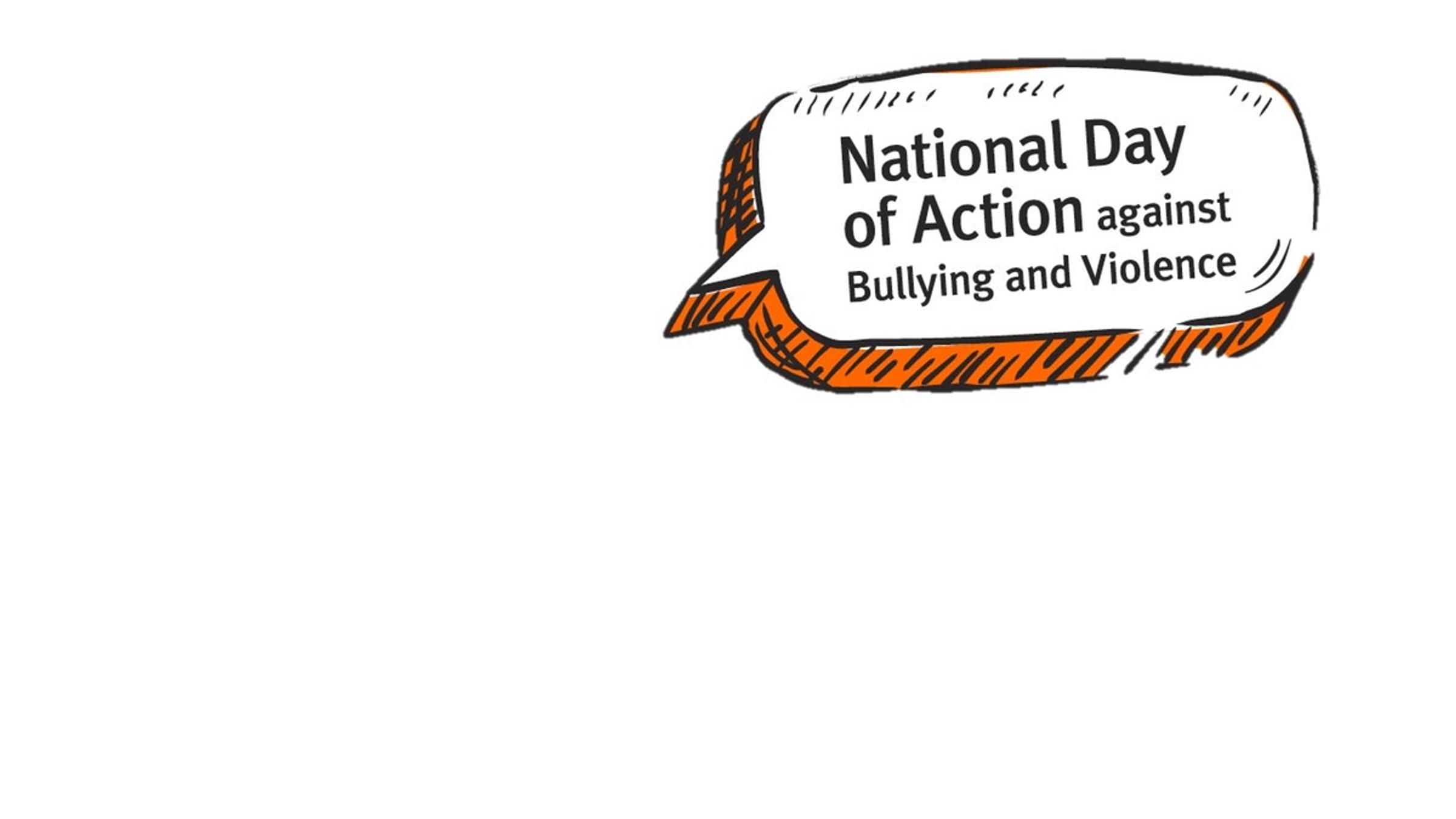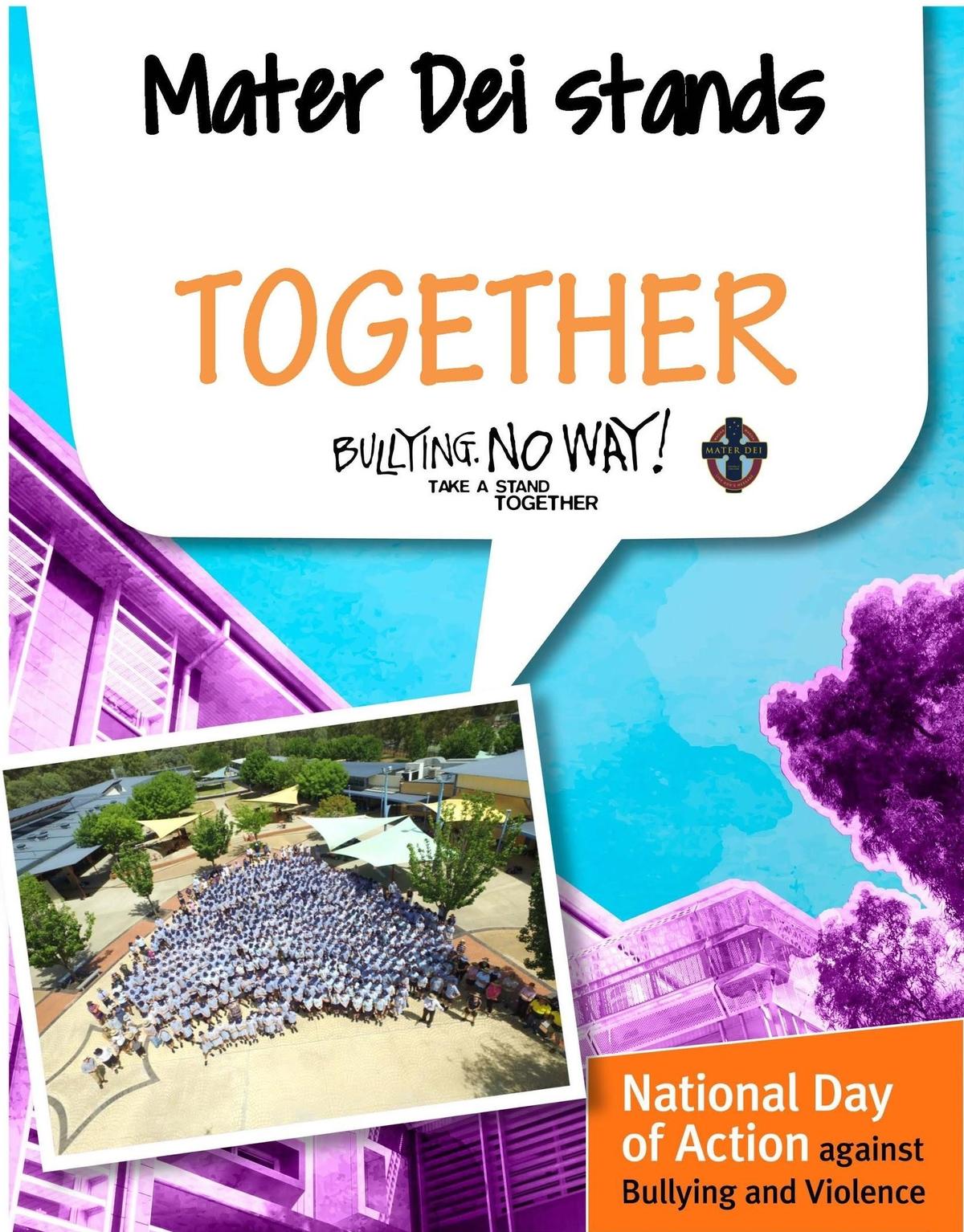Academic Care and Wellbeing - Students

2020 National Day Against Bullying 20 March
The national definition of bullying for Australian schools is as follows:
Bullying is an ongoing misuse of power in relationships through repeated verbal, physical and/or social behaviour that causes physical and/or psychological harm. It can involve an individual or a group misusing their power over one or more persons. Bullying can happen in person or online, and it can be obvious (overt) or hidden (covert).
Bullying of any form or for any reason can have long-term effects on those involved, including bystanders. Single incidents and conflict or fights between equals, whether in person or online, are not defined as bullying. Behaviours that do not constitute bullying include:
Mutual arguments and disagreements (where there is no power imbalance).
Not liking someone or a single act of social rejection.
One-off acts of meanness or spite.
Isolated incidents of aggression, intimidation or violence.
These conflicts however, still need to be addressed and resolved.
What can we all do?
This opinion piece in The Conversation proposes that modelling inclusion is how we can combat discrimination and intolerance in society, and ultimately, bullying among children and that both parents and educators support children in this by teaching them to:
1. Label feelings
When children can identify, and understand their own feelings they can understand how others feel. As children get older, parents and teachers can focus on the more difficult emotions including shame, guilt, embarrassment, anger, fear and sadness — in both themselves and in others.
2. Understand differences
Discuss the ways children are different (e.g., taller and shorter) and similar (e.g., we all feel sad at times) to one another. Try not to get anxious when a child mentions a disability or colour of skin. This is an obvious difference and our anxiety indicates that there is something wrong or to be scared of.
3. Help others
Let children try to help others. When another child is upset, discuss why, and how to help them feel better. Learning through doing is great when developing empathy and perspective-taking skills.
4. Perform acts of kindness
Allow the children to experience how it feels to make people feel good. Identify the individual child’s strengths and abilities and how they can use these to help others. Discuss how it makes them feel. Teach that generosity and kindness matter.
5. Repair relationships
We will always hurt people; this is part of life. When your child hurts someone else either intentionally or unintentionally, help them find a way to genuinely repair the relationship (e.g., with an apology or letter). Encourage the child to take responsibility for their actions.
6. Follow your Lead
Model the behaviour you want to see in children. If a parent models bullying or aggressive behaviour, it will be very difficult for a child to engage in caring, empathic behaviour.
If you are working on changing your own behaviours, talk about it with your child. You can explain how it feels and the struggle to change your actions and understanding of the world. Your child can understand. And apologize for yourself when you misstep. We all do.
All Mater Dei Catholic College staff are committed to providing a supportive and nurturing environment that enhances student learning and wellbeing. If you have any concerns please do not hesitate to contact your child’s House Leader to discuss the nature of support required.
Resources
The Australian Government eSafety Commissioner is committed to helping young people have safe, positive experiences online and encouraging behavioural change, where a generation of Australian children act responsibly online—just as they would offline.
They provide online safety education for Australian children and young people, a complaints service for anyone who experience serious cyberbullying, and address illegal online content through the Online Content Scheme.
Ms Melanie Cramp | Leader of Students

